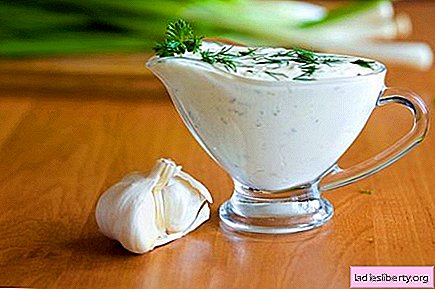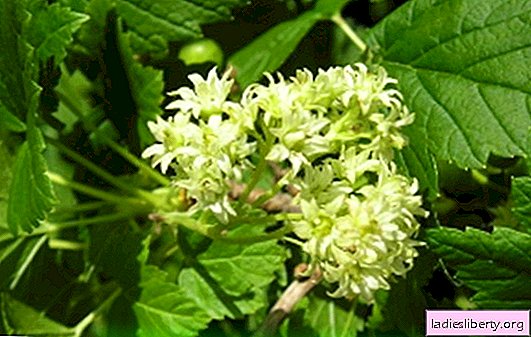
Inflammation of the oral mucosa or stomatitis is a disease in which the upper layer of the tissues of the oral cavity is affected. This can happen in both adults and children. Consider in more detail the causes of inflammation of the oral mucosa and methods for eliminating this unpleasant ailment.
Inflammation of the oral mucosa: the main causes
The causes of stomatitis can be:
1. The presence of caries and other dental diseases that are not treated.
2. The presence of tartar.
3. Diabetes mellitus can give an impetus to inflammation of the oral mucosa. Moreover, this disease is able to affect all body systems, provoking the development of chronic gastrointestinal pathologies, endocrine disorders, heart diseases, etc.
4. Elimination of unsuitable dentures that injure the mucous membrane of the mouth.
5. Stomatitis as a reaction to taking certain medications and chemotherapy.
6. Non-observance of the rules of oral hygiene.
7. Smoking.
8. Taking alcohol-containing alcoholic beverages that irritate the oral mucosa.
9. Chronic diseases of the stomach.
10. Immune disorders resulting from overwork, stress, lack of sleep, or recent illnesses.
11. Disorders in the hormonal background.
12. Damage to dangerous bacteria or viruses of the oral mucosa.
13. Permanent injury to the mucous membrane. Overly active brushing or eating solid foods can contribute to this.
14. The lack of nutrients in the body, which is why it weakens.
15. Anemia.
16. HIV infection.
17. The use of poorly washed foods, because of which microbes got into the mouth.
18. Food with unwashed hands.
19. The presence of leaking dental crowns, which is why pathogens constantly multiply in the person’s mouth and cause inflammation.
20. Unauthorized (without a doctor’s prescription) taking medications that contribute to increased excretion of saliva, reducing its antibacterial effect.
21. Dehydration due to profuse blood loss, diarrhea, or prolonged vomiting.
22. Infectious disease due to diseases such as influenza, herpes or scarlet fever.
23. Malnutrition (when the diet lacks vitamin B, iron and zinc).
24. A chemical burn of the oral cavity can occur with the accidental ingestion of acidic chemicals.
25. The use of toothpaste, which includes sodium lauryl sulfate (such a paste will irritate the mucous membrane of the mouth).
26. The development of oncological pathologies of the neck or pharynx sometimes becomes a consequence of the detection of oral stomatitis.
Inflammation of the oral mucosa: symptoms and types
The following varieties of stomatitis are distinguished:
1. Bacterial stomatitis occurs due to the defeat of streptococci and other dangerous bacteria. It is accompanied by the appearance of painful pustules in the oral cavity, which quickly turn into ulcers.
2. Fungal stomatitis occurs with prolonged use of antibiotics or malfunctioning of the immune system. It is accompanied by the formation in the mouth of a dense white plaque, which when removed leads to wounds and painful ulcers.
3. Viral stomatitis is due to viral damage (herpes for example). In this case, a small rash appears in the patient's mouth, inside of which there is a transparent content.
4. Chemical stomatitis is formed by burns with acid. In this case, the patient has gross ulcers in the mouth, which over time deform the mucous membrane and become covered with scars.
In addition, the following typical symptoms of inflammation of the oral mucosa are distinguished:
1. An increase in body temperature.
2. Chills.
3. Loss of appetite.
4. Headaches.
5. Nausea.
6. Redness of the mouth at the site of the lesion and swelling of the mucosa.
7. Burning in the mouth.
8. Pain during eating and swallowing (in advanced cases). In this case, sometimes the pain is so sharp that a person completely refuses to eat. In this case, he must be prescribed strong analgesics.
9. The formation of white plaque on the oral mucosa, during which a person will experience terrible pain.
10. The formation of small mouth ulcers, which are covered with a thin film.
11. Bad breath.
12. Increased salivation.
13. The appearance of blood from the gums.
Most often with stomatitis, the cheeks, soft palate and the area on the inside of the lips are affected.
The duration of the course of the disease can be different. It usually takes from five to fourteen days.
Inflammation of the oral mucosa: treatment
Stomatitis treatment should be comprehensive. Drug therapy is considered mandatory. It provides for the appointment of such groups of drugs:
1. Preparations for cleansing ulcers.
2. Antibacterial drugs should prevent bacteria from re-infecting the sores. Usually for this purpose are assigned:
• Metrogil;
• Chlorhexidine in the form of a rinse.
3. Antiviral drugs in the form of ointments and tablets (Acyclovir, Bonaphthonic or Oxolating ointment).
4. Antiseptics with a strong antimicrobial effect:
• Holisal gel;
• Kamistad dental gel;
• Actovegin gel;
• Eucalyptus lozenges.
5. Means that contribute to the healing of wounds in the mouth. This is best done with:
• sea buckthorn oil;
• Vinylinum;
• Propolis spray;
• Carotoline oil solution.
With these tools, you need to lubricate the oral cavity every two hours.
6. The purpose of painkillers, such as:
• Anestezin for local application;
• Hexoral;
• Lidochor;
• Lidocaine spray.
7. To restore the microflora, which may be disturbed after taking antibiotics, the following drugs are prescribed to the patient without fail:
• Linex;
• Bifidum;
• Filak forte;
• Mezim;
• Pancreatin.
Features of the treatment of inflammation of the oral mucosa
Stomatitis treatment has the following features and nuances:
1. The patient is recommended to follow a diet. Clinical nutrition provides a complete rejection of spicy and fatty foods, which can irritate the oral mucosa. Also, do not drink alcohol and smoke.
To increase immunity, you should eat a lot of vegetables, cottage cheese, boiled meat and non-acidic fruits.
It is also important to know that refusing to eat due to pain in the mouth is unacceptable, especially in children.
2. It is imperative to rinse your mouth with antibacterial solutions and decoctions of herbs. Best decoction of pharmacy chamomile and a solution of soda.
3. Be sure to take vitamin complexes.
4. If stomatitis caused stress or a strong emotional shock, then the patient should be prescribed sedatives.
5. Local treatment of wounds in the mouth helps with peach, sea buckthorn and Kalanchoe juice.
6. During treatment, the patient may be at home (with mild forms of stomatitis). Despite this, every two days the patient is recommended to visit a doctor for a follow-up examination of the oral cavity.
7. If stomatitis caused a chemical burn, then you should immediately consult a doctor. A person alone will simply not be able to eliminate such consequences from a burn.
In order to prevent the development of inflammation of the oral mucosa, the following doctor's recommendations should be followed:
1. Do not eat solid foods that can injure your teeth or oral mucosa. Hard candies and cookies usually lead to this.
2. Regularly carry out oral hygiene (brush your teeth at least twice a day, rinse your mouth with an antibacterial solution after each meal).
3. Visit your dentist regularly and fix all problems with your teeth.
4. Wear high quality dentures. Moreover, if the denture presses or causes discomfort, you can not wear it.
5. Maintain a good state of immunity. To do this, you need to eat well, avoid stress, overwork and have a healthy sleep.
6. Time to treat those diseases of the digestive tract that can lead to stomatitis.
7. Do not self-medicate or take drugs without a doctor’s prescription, as they can cause stomatitis.
8. To give up smoking and drinking alcohol, as they strongly irritate the oral mucosa.
9. All products must be thoroughly cooked or washed under running water (if they are fruits) before use.
10. It is necessary to carefully monitor the expiration date of food and not to eat already spoiled foods.











